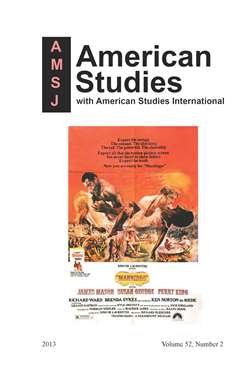Abstract
In part because efficiency is made to appear so ludicrous, E.J. Rath’s 1917 Too Much Efficiency projects in bold relief the absurdities of household management. When it is read with Dorothy Canfield Fisher’s 1924 The Home-Maker and Edith Wharton’s 1927 Twilight Sleep, we can see how all three novels contributed to a domestic management counter-narrative that contested the easy solution promoted by home economists of adapting industrial practices to the upper-class and middle-class home. While that counter-narrative directly challenged some of the tenets and assumptions of domestic management, it was most powerful in its reminding readers that the home is not an assembly line.All items © Mid-America American Studies Association
Authors: If you prefer to remove your text(s) from this database please contact the editor.

